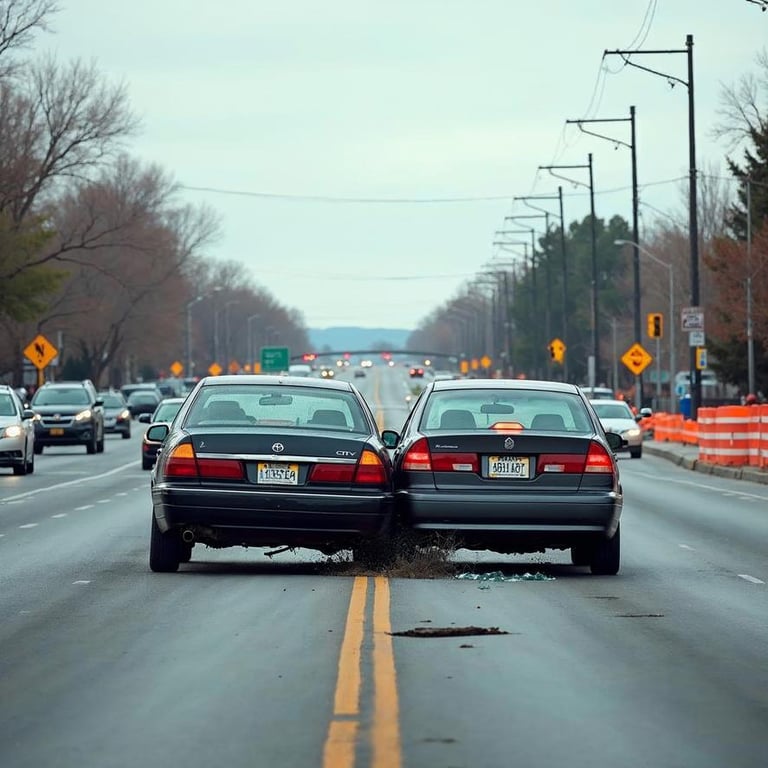
Unfortunately, based on your response, you may not qualify to file a claim. Most personal injury cases must be filed within two years of the accident, in accordance with the statute of limitations. Please consult with a licensed attorney to explore any possible exceptions or additional options.
Rear-end collisions are one of the most common types of car accidents in Boise, Idaho, and across the United States. These accidents typically occur when one vehicle crashes into the back of another, often causing significant property damage and injuries. Understanding how to handle rear-end collision claims is crucial for victims to ensure they receive the compensation they deserve.
Several factors contribute to rear-end accidents, including distracted driving, following too closely, sudden stops, and adverse weather conditions. Boise's growing traffic volume and road construction projects can also increase the likelihood of these types of accidents.
Using a phone, eating, or any activity that takes a driver’s attention away from the road can lead to rear-end collisions.
Drivers who follow too closely may not have enough time to stop safely if the vehicle in front slows down.
Being prepared can help ease the stressful situation following a rear-end crash. First, ensure everyone's safety and seek medical attention if needed. Then, document the accident thoroughly by taking pictures of the scene, exchanging information with the other driver, and gathering witness contact details. Filing a police report is also important. This evidence can help support your rear-end collision claim effectively.
The claims process begins with notifying your insurance company and providing all the necessary documentation, including the police report, photos, and medical records. Your insurance adjuster will investigate the accident to determine liability and assess damages. It is essential to understand what insurance covers in rear-end collisions to advocate for your rights and compensation.
Generally, the driver who rear-ends another vehicle is presumed to be at fault. However, there are exceptions, such as when the front driver stops suddenly without cause or has non-functioning brake lights. Understanding liability is key as it impacts the outcome of a claim.
Injuries from rear-end collisions can range from minor whiplash to more severe conditions. It’s important to seek medical attention promptly and keep detailed records of all treatments and related expenses. This documentation can significantly influence your compensation.
Navigating the claims process can be complex, especially when dealing with insurance companies or disputes over fault. Resources like claim help services can provide valuable information to guide you through your rear-end collision claim in Boise.
Understanding the nature of rear-end collisions and the claims process can empower victims to protect their rights and obtain fair compensation. For more detailed insights, explore comprehensive guides such as determining fault in multi-vehicle car accidents. Additionally, gaining knowledge from authorities such as the Insurance Institute for Highway Safety (IIHS) on rear-end crashes can provide valuable safety information and statistics.
Unfortunately, based on your response, you may not qualify to file a claim. Most personal injury cases must be filed within two years of the accident, in accordance with the statute of limitations. Please consult with a licensed attorney to explore any possible exceptions or additional options.